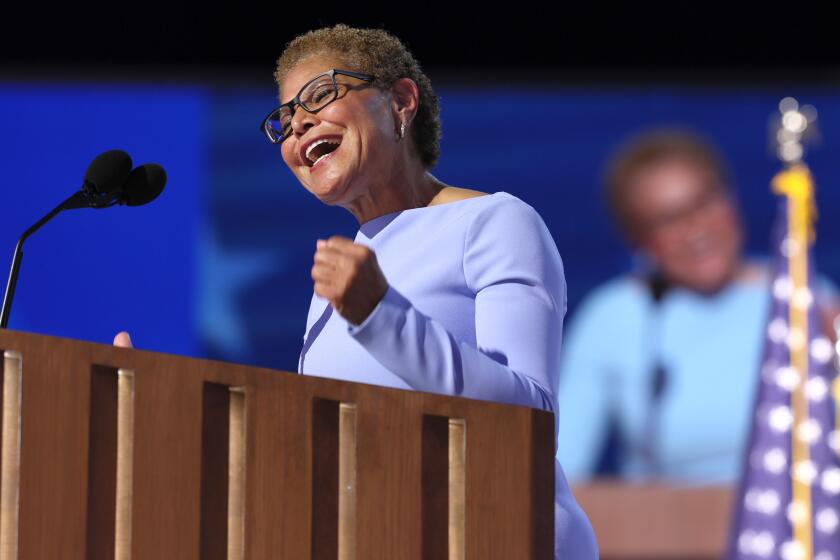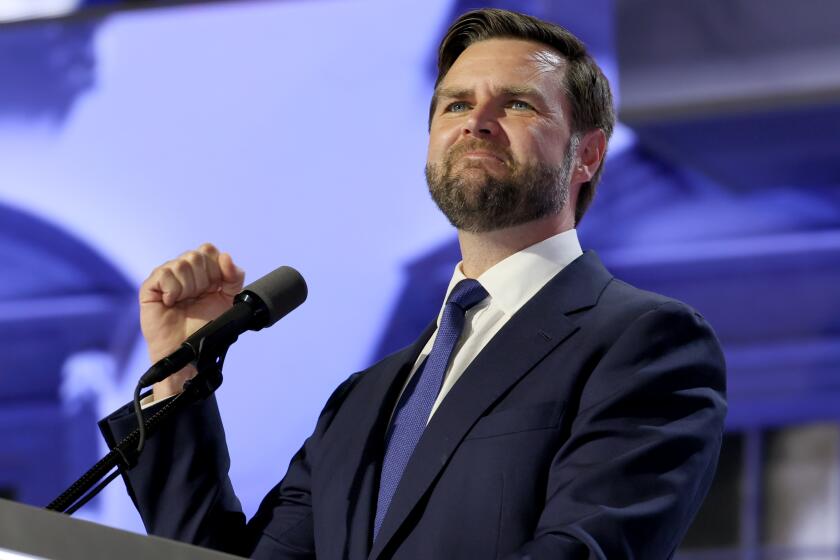Statutes and limitations
IN ADMITTING TO the House Judiciary Committee that she “crossed a line” by posing political questions to applicants for career positions at the Justice Department, Monica M. Goodling helped explain why she was such a reluctant witness. But the committed conservative who served as White House liaison for Atty. Gen. Alberto R. Gonzales also could have been describing her former boss. He too has crossed a line, albeit a blurrier one.
The boundary Goodling transgressed was the bright line separating the lawful from the unlawful. A similar -- but much more serious -- transgression occurred if one or more of eight dismissed U.S. attorneys were fired for targeting Republicans or for not targeting Democrats. Goodling echoed administration denials of that worst-case scenario, which would involve line-crossing big time (as Vice President Dick Cheney might say). In fact, it would be obstruction of justice.
Unfortunately, the Bush administration has invited dark speculation with its shifting explanations of the dismissals and Gonzales’ assertion that he was essentially AWOL in the process. That’s why it remains vital that Karl Rove and former White House counsel Harriet E. Miers testify on the record before Congress about their involvement, if any, in the purge.
Yet even if the firings weren’t designed to thwart prosecutions like the one that led to a prison sentence for former Rep. Randy “Duke” Cunningham (R-Rancho Santa Fe), it’s obvious that partisan politics has intruded in an unusual way in the operation of this Justice Department. Gonzales by most accounts has been demonstrably less vigilant than his predecessors -- including John Ashcroft, a former U.S. senator -- in policing the line between politics and legal policy.
That line is admittedly less clear than the one Goodling admitted to crossing. For good or ill, the Justice Department is a hybrid of the political and the professional. Line prosecutors are career employees, but the attorney general and his top aides are political appointees. So are prosecutors such as David C. Iglesias, who was put forward for the position of U.S. attorney for New Mexico by Republican Sen. Pete Domenici. (Domenici later experienced seller’s remorse and Iglesias was fired -- after telling the senator he wouldn’t be fast-tracking a corruption investigation involving Democrats.)
Precisely because politics is pervasive in the appointment of U.S. attorneys, a wise attorney general would take pains to prevent both the reality and the appearance of partisanship in the administration of justice. In failing to do so, Gonzales has crossed still another line -- the one separating competence from incompetence. And yet as late as Thursday, President Bush was assuring the nation that “I’ve got confidence in Al Gonzales doing the job.”
More to Read
Get the L.A. Times Politics newsletter
Deeply reported insights into legislation, politics and policy from Sacramento, Washington and beyond. In your inbox three times per week.
You may occasionally receive promotional content from the Los Angeles Times.










